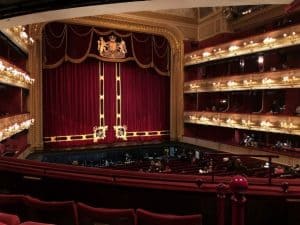September 15, 2023 by Alison Tunley
Get a Free Quote
Our Accreditations





Recent Updates
Culture-bound syndromes and how language shapes illness
In her book Sleeping Beauties, neurologist Suzanne O’Sullivan explores the phenomenon of culture-bound illnesses around the world. The conditions she is interested in are psychosomatic disorders which arise due to a complex interaction between the mind and body, but… Read More

Commercial translators regularly work with specific constraints imposed by the client, but few will have faced the kind of challenge taken on by John Deathridge in creating a new translation of Rhinegold, commissioned by English National Opera. Rhythmic adjustments to fit the music, including extra syllables or slurring to accommodate differences between the German and English, are just some of the many thorny issues a libretto translator will have to overcome. Radio 3’s Music Matters delved into the difficulties of creating what they describe as a ‘contemporary English translation of a piece of Germanic cultural history’.
In tackling the translation for this first opera in Wagner’s Ring Cycle, Deathridge sought inspiration from the way the original libretto was developed. Apparently, this involved Wagner regularly reading the text aloud at home ‘to his wife [….] or whoever was there’. The relevance of doing this for text that will be performed — albeit with added music — is immediately clear. The sound of the words is crucial in this context. But reading aloud is a technique translators and proofreaders successfully use for the purely written medium too. It is an excellent way of spotting errors and improving the flow of the text.
The importance of sound in the libretto is clear from the opening sequence ‘Weia! Waga!’ sung by the Rhinemaidens, which offers an unconventional translation challenge due to the use of what Deathridge describes as composite words to evoke the German Welle, Wasser (wave, water). Another translation feature that is unique to this context is the way Deathridge sought to reflect the symphonic style of the music in the text. Just as musical motifs are developed from the start and picked up in subsequent scenes, Deathridge sought to ensure ‘words are implied that will be used later’ when translating the libretto.
After examining the intricacies of the translation task, Music Matters tackles the broader question of whether an English language version is desirable at all. Martin Fitzpatrick, head of music at ENO, makes the case in favour of translated operas, describing the ‘direct communication’ that is possible when the audience, orchestra and singers all have a collective knowledge of the language being used. He suggests the experience is quite different than when mediated through a foreign language.
A rather different view is given by Zachary Woolfe, classical music editor at the New York Times. With notable exceptions at Chicago and ENO, he suggests English language productions are something of a vanishing art. Contributing factors include the impact of live subtitling technology, which has made foreign language opera more accessible. Woolfe also mentions something this blog has explored previously — the increasing prevalence of subtitling for consuming television and film content, which has made audiences more comfortable with the subtitled experience. In fact, ENO always use live surtitles even though the performances are in English.
Finally, Woolfe even suggests a hint of cultural imperialism in the act of translating opera into English, rather than accepting that the ‘best presentation of a work is going to be in its original language’. Whatever the merits of attempting a translation in the first place, the new Rhinegold text certainly gives reviewers one more thing to disagree about, with verdicts ranging from ‘idiomatic’ and ‘wonderfully singable’ to ‘ill-fitting’ and ‘clunky’.
Get a Free Quote
© 2024 All Rights Reserved
Rosetta Translation, 133 Whitechapel High St, London E1 7QA · 0207 248 2905
Comments
Add Comment